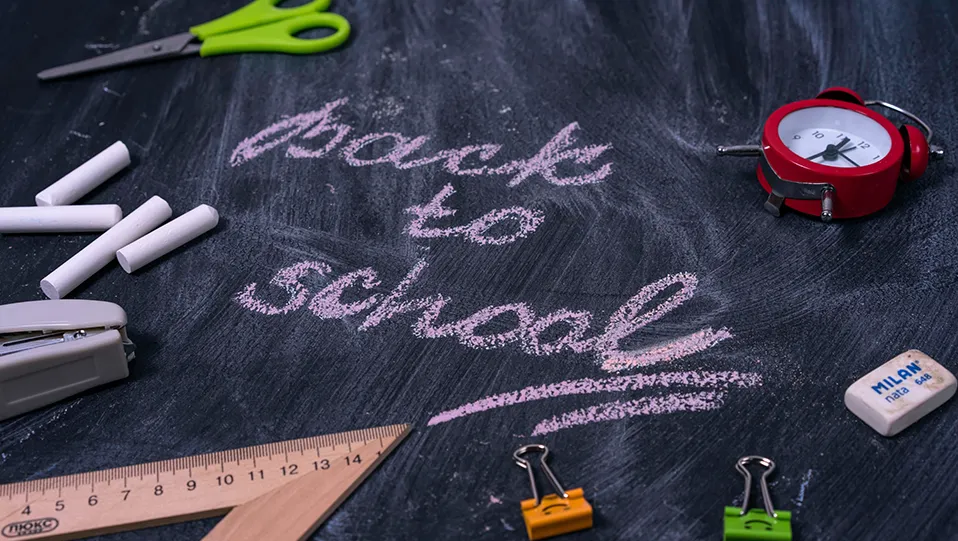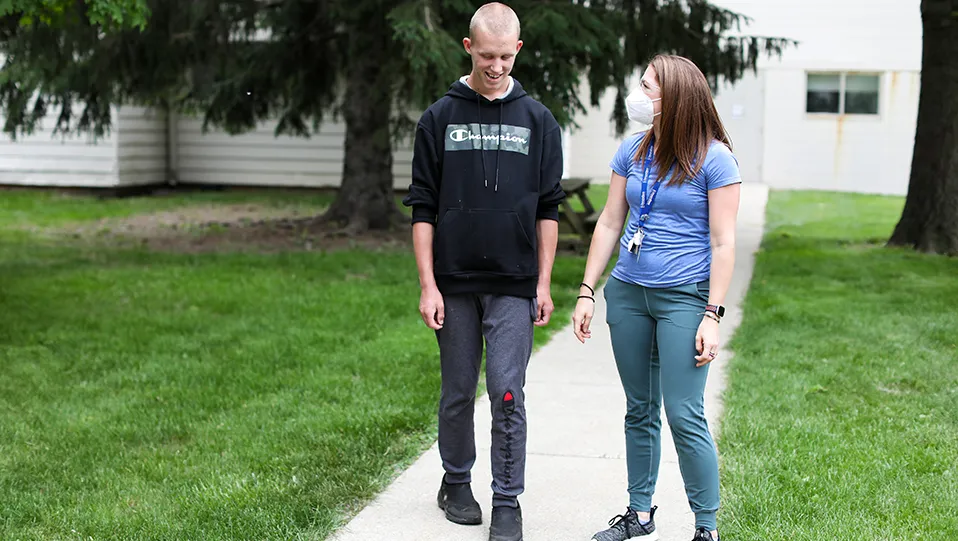Back-to-School Tips and Tricks
- News

“If you need a break, let your teacher know.”
Feeling a mixture of emotions as your child gets ready to go back to school? You are not alone. Parents, teachers, and kids are all feeling stress, excitement, nervousness, and eagerness as the first day of school approaches, but Boundless is here to help. In our recent episode of Well-Being: A Boundless Podcast, Scott Light sat down with SOAR student Obi, his mother Shandale Fletcher, and ELM Clinic Director Kristen Messer to discuss some tips and tricks for a smooth and successful school year.
New beginnings bring new expectations we set for ourselves and our children. As Scott Light says in the podcast, “these expectations can be lofty.” These expectations are generally how we think the day or year should go, but typically they are set too high and are unobtainable. It’s important to set realistic goals for your kids and yourself. When parents or children aren’t meeting these goals, be sure to have a plan set in place and be easy on yourself. These plans can be to set a new goal, talk about why you didn’t reach the goal, or possibly have a meeting with your child’s teacher to discuss why the goal wasn’t met. It is still okay and encouraged to set the bar high but make your goals obtainable. Shandale advises being easy on yourself and your kids.
Going to school is exciting, stressful, and nerve-wracking all in one. Kristen likes to call these “spaghetti feelings” because these emotions come to us and are often all tangled up in one big ball. Children, parents, and teachers all have these feelings. The school year can bring with it a lot of change and uncertainty. Meeting new friends, a new teacher, learning new subjects, being in a different building, and everything else is a big transition and can be overwhelming, but exciting. It is important to validate these feelings for yourself and your children. Kristen says, “being nervous and worried is healthy and normal.” You are not the only one who feels the way you feel.
To help with these emotions, parents, and teachers should develop coping skills and have a plan in place if these feelings get to be too much. For Obi, that means letting his teacher know when he needs a break. He also has a code word that he uses when he needs a break but doesn’t want to interrupt the class. Parents and teachers can work to teach their children healthy coping mechanisms that can calm them down. Coping skills that benefit Obi include deep breathing, pressure, tickling, and a good back rub. Coping mechanisms for your loved one might include squeezing a stress ball, counting backward from five, reading their favorite book, or positive self-talk. Knowing what coping skills work for your child can be very useful in dealing with their emotions, but Kristen says that focusing on coping skills needs to start during stable behavior to ensure they’re effective. Kristen also suggests parents start coping skills ahead of time, so that it will be easier to deal with these emotions when they come up.
Kristen’s back-to-school checklist is below:
-
Establish a before and after school routine
-
Practice the routine before school starts
-
Talk about emotions and make plans to help handle emotions
-
Practice transportation routines (e.g. where the bus will pick you up, etc.)
-
Talk about behavioral and academic expectations
-
Set goals together (make sure they are obtainable)
-
Talk with the teacher/staff about what your child is feeling and how they best handle those emotions
-
Remember that Learning is FUN and to share that attitude with your child. If you think its fun and exciting to learn, they will too!
Communication is key between the children, parents, teams, and teachers. Shandale advises that parents take the time to learn from their children’s teachers and school teams. Be open with your child’s teacher and express any concerns you may have. As a parent, be available to hear concerns and questions that your child may have.
Going back to school can be difficult. As Obi’s mom, Shandale, says “it seems to get easier, but harder” as the kids grow up. However, it doesn’t have to be so stressful and dreadful. To mentally and physically prepare for that first day of school, try practicing routines early. Start having your kids go to bed earlier and wake up earlier, have a code word set in place, go look at the place your child will be going to school so it’s a little familiar to them when they go, and set goals for the first day.
And for all the children reading this, Obi has some important words of wisdom to share, “if you need a break, let your teacher know.”








